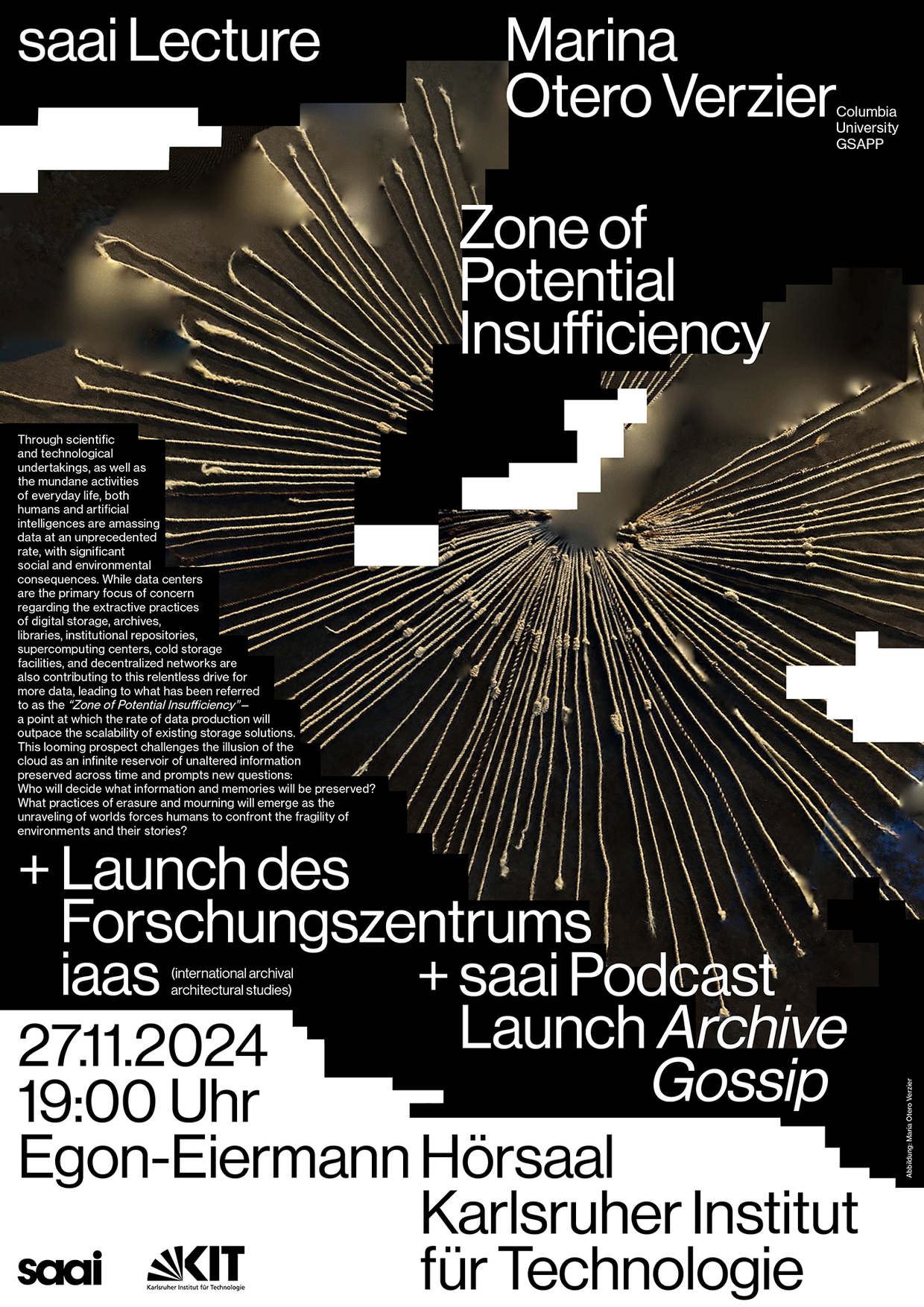Marina Otero Verzier, Columbia University GSAPP
Zone of Potential Insufficiency
KIT Fakultät für Architektur, Egon-Eiermann-Hörsaal, 19.00 Uhr
With the introduction of the saai Lectures, an annual lecture with international guests, the Archive for Architecture and Engineering (saai) is actively involved in the discourse on the built environment as a dynamic place of knowledge. Archives are the foundation of a sustainable future, the basis for the reappraisal of social heritage and a generator for ever better questions.
As part of the event, the saai will launch its new research center iaas [international architectural archival studies] as well as the saai's new podcast series "Archive Gossip".
Our guest is Marina Otero Verzier with the lecture "Zone of Potential Insufficiency". Marina Otero Verzier is the Dean’s Visiting Assistant Professorat the Graduate School of Architecture, Planning and Preservation at Columbia University, New York. In 2022 she received Harvard’s Wheelwright Prize for a project on the future of data storage. From 2015 to 2022, she was the Director of Research at HNI, where she led initiatives focused on labor, extraction, and mental health from a post-anthropocentric perspective, including “Automated Landscapes,” and “BURN-OUT.” Otero has curated exhibitions such as the Dutch Pavilion at the Venice Architecture Biennale in 2018 and the 2016 Oslo Architecture Triennale, and co-edited Lithium: States of Exhaustion (2021), More-than-Human (2020), Architecture of Appropriation (2019), Work, Body, Leisure (2018), among others. In 2013, as a Fulbright Scholar, she graduated from the M.S. in Critical, Curatorial and Conceptual Practices in Architecture at Columbia University GSAPP. She completed her PhD at ETSAM in 2016.
In her lecture, she will examine a series of encounters with architectural archives that deal with the more than hundred-year history of architectural modernism. Through scientific and technological undertakings, as well as the mundane activities of everyday life, both humans and artificial intelligences are amassing data at an unprecedented rate, with significant social and environmental consequences. While data centers are the primary focus of concern regarding the extractive practices of digital storage, archives, libraries, institutional repositories, supercomputing centers, cold storage facilities, and decentralized networks are also contributing to this relentless drive for more data, leading to what has been referred to as the "Zone of Potential Insufficiency"—a point at which the rate of data production will outpace the scalability of existing storage solutions. This looming prospect challenges the illusion of the cloud as an infinite reservoir of unaltered information preserved across time and prompts new questions: Who will decide what information and memories will be preserved? What practices of erasure and mourning will emerge as the unraveling of worlds forces humans to confront the fragility of environments and their stories?


